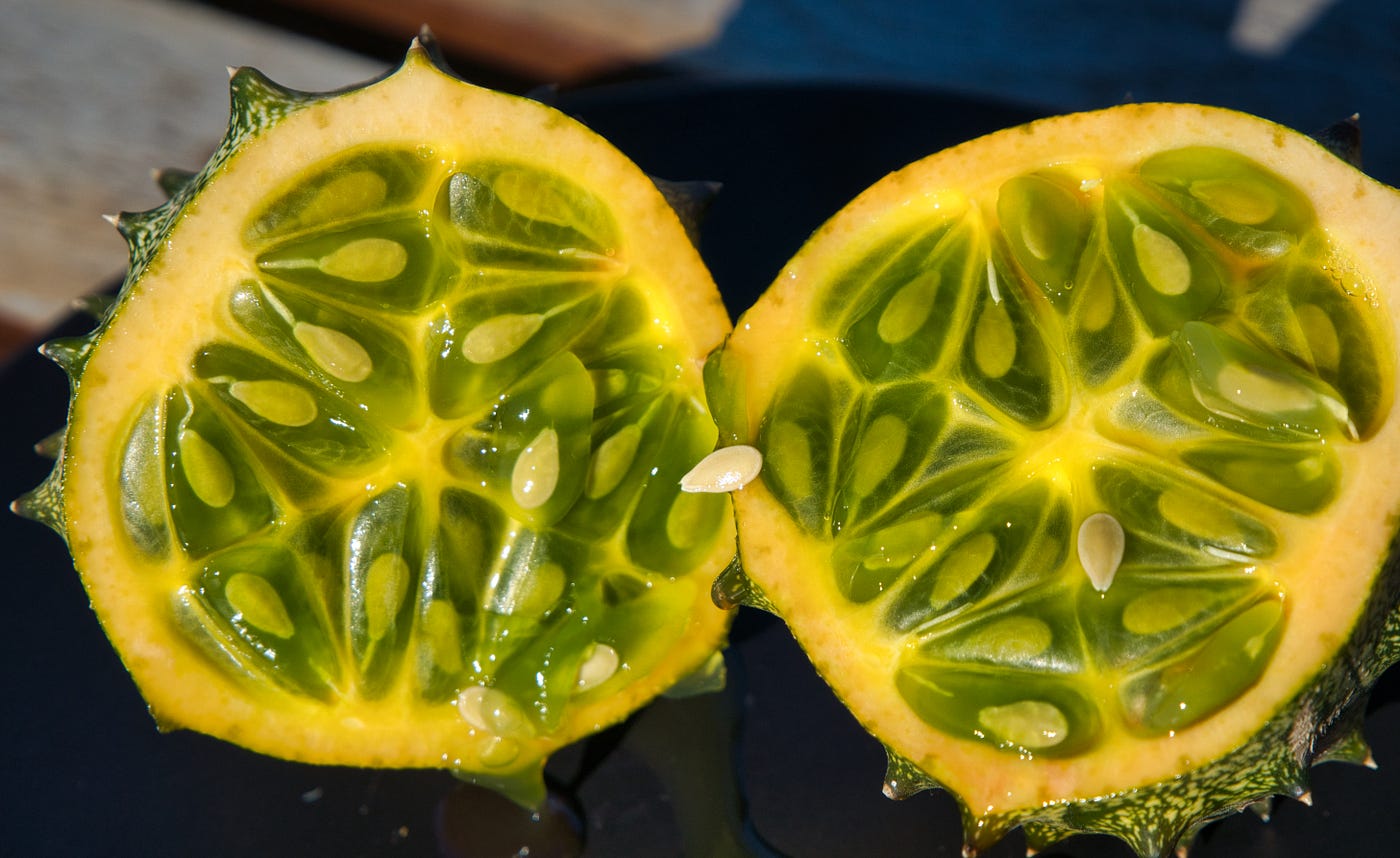
Ever heard of the African horned cucumber? Also known as kiwano, this spiky fruit is more than just a quirky-looking snack. Originating from Africa, it has a vibrant orange skin covered in horn-like spines. Inside, the flesh is a bright green with a jelly-like texture. But what makes this fruit so special? Kiwano is packed with nutrients, including vitamins A and C, iron, and potassium. It's not just a pretty face; it’s a powerhouse of health benefits. Whether you’re a foodie, a health nut, or just curious, here are 30 fascinating facts about the African horned cucumber that will make you see this fruit in a whole new light.
What is an African Horned Cucumber?
The African horned cucumber, also known as kiwano or horned melon, is a unique fruit native to Sub-Saharan Africa. Its spiky exterior and vibrant orange skin make it stand out in any fruit basket. Let's dive into some fascinating facts about this exotic fruit.
-
Scientific Name: The scientific name for the African horned cucumber is Cucumis metuliferus.
-
Appearance: This fruit is easily recognizable due to its spiky, horn-like protrusions on its skin.
-
Color: When ripe, the skin turns a bright orange, while the flesh inside is a striking lime green.
-
Taste: The flavor is a mix of banana, cucumber, and lime, offering a unique taste experience.
Nutritional Benefits
The African horned cucumber isn't just interesting to look at; it's also packed with nutrients that can benefit your health.
-
Low in Calories: One fruit contains only about 44 calories, making it a great low-calorie snack.
-
Rich in Vitamin C: This fruit is an excellent source of vitamin C, which is essential for a healthy immune system.
-
High in Antioxidants: It contains antioxidants that help protect your cells from damage.
-
Hydrating: With a water content of around 90%, it helps keep you hydrated.
Cultural Significance
The African horned cucumber holds a special place in various cultures, especially in Africa where it originates.
-
Traditional Medicine: In some African cultures, it's used in traditional medicine to treat various ailments.
-
Symbolism: The fruit is often seen as a symbol of fertility and abundance.
-
Culinary Uses: In Africa, it's commonly used in salads, desserts, and even as a garnish.
Growing Conditions
Understanding the growing conditions of the African horned cucumber can give insights into its unique characteristics.
-
Climate: It thrives in warm, tropical climates.
-
Soil: Prefers well-drained, sandy soils.
-
Watering: Requires moderate watering; too much water can cause root rot.
-
Sunlight: Needs full sun to grow properly.
Fun Facts
Here are some quirky and fun facts about the African horned cucumber that you might not know.
-
Longevity: It can last for several months without refrigeration.
-
Space Food: NASA has considered it as a potential food source for astronauts due to its long shelf life.
-
Decorative Use: Its unique appearance makes it popular as a decorative item in homes and restaurants.
-
Nickname: Sometimes called "blowfish fruit" because of its spiky appearance.
Health Benefits
Beyond its nutritional value, the African horned cucumber offers several health benefits.
-
Digestive Health: High fiber content aids in digestion.
-
Skin Health: Antioxidants and vitamins help improve skin health.
-
Weight Loss: Low in calories and high in water content, making it ideal for weight loss diets.
-
Heart Health: Contains potassium, which is good for heart health.
Culinary Uses
The African horned cucumber can be used in a variety of culinary applications, adding a unique flavor and texture to dishes.
-
Smoothies: Its juicy flesh is perfect for adding to smoothies.
-
Salads: Adds a refreshing crunch to salads.
-
Desserts: Can be used in desserts for a tropical twist.
-
Garnish: Its vibrant color makes it an attractive garnish for cocktails and dishes.
Environmental Impact
Growing and consuming African horned cucumbers can have positive environmental impacts.
-
Drought-Resistant: It is drought-resistant, making it a sustainable crop in arid regions.
-
Low Pesticide Use: Generally requires fewer pesticides compared to other crops.
-
Soil Health: Helps improve soil health by adding organic matter.
Final Thoughts on the African Horned Cucumber
The African horned cucumber is more than just a quirky-looking fruit. Packed with nutrients, it offers a unique taste and a variety of health benefits. From boosting immunity to aiding digestion, this spiky fruit is a hidden gem in the world of superfoods. Its vibrant appearance and versatility in recipes make it a fun addition to any kitchen. Whether you eat it raw, add it to a salad, or blend it into a smoothie, the African horned cucumber is worth a try. Plus, its antioxidant properties can help combat free radicals, promoting overall well-being. So next time you spot this exotic fruit at the market, don't hesitate to give it a go. You might just find a new favorite snack that's as nutritious as it is intriguing.
Was this page helpful?
Our commitment to delivering trustworthy and engaging content is at the heart of what we do. Each fact on our site is contributed by real users like you, bringing a wealth of diverse insights and information. To ensure the highest standards of accuracy and reliability, our dedicated editors meticulously review each submission. This process guarantees that the facts we share are not only fascinating but also credible. Trust in our commitment to quality and authenticity as you explore and learn with us.
